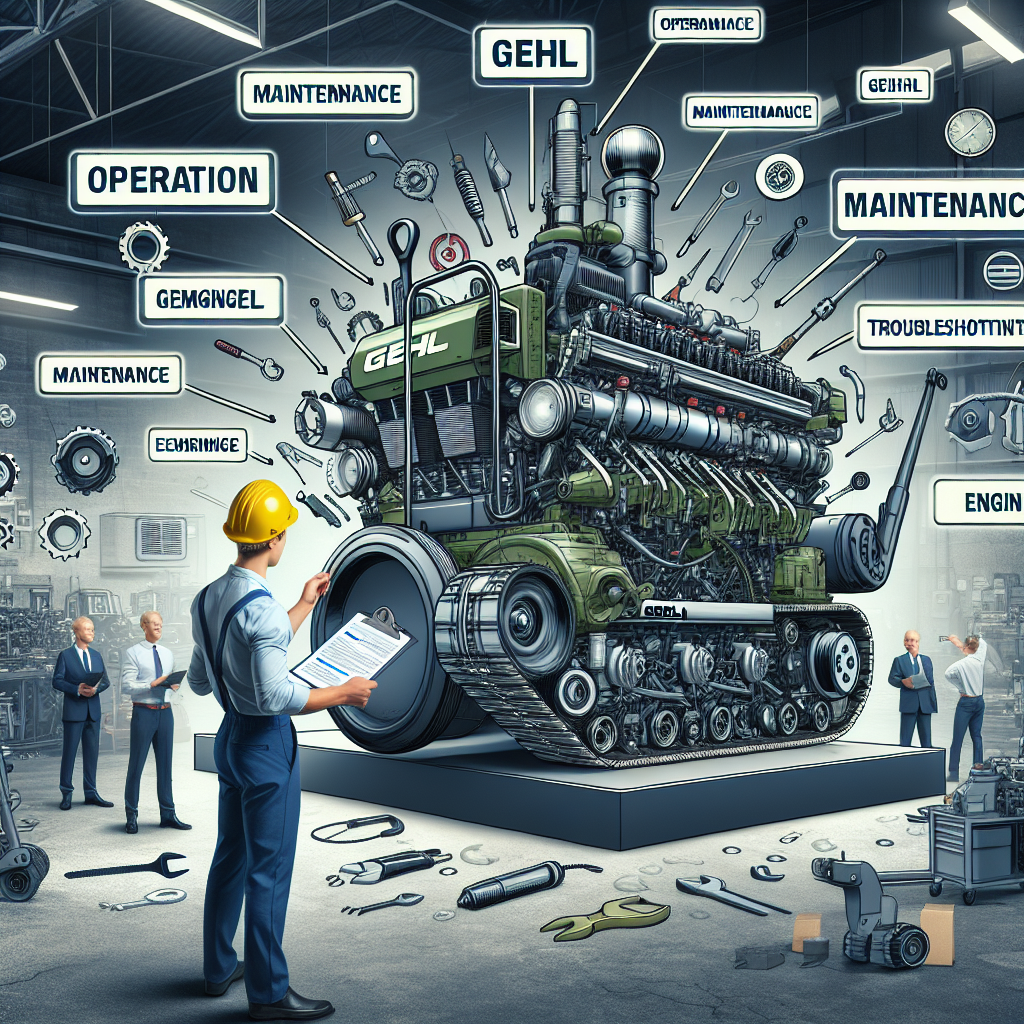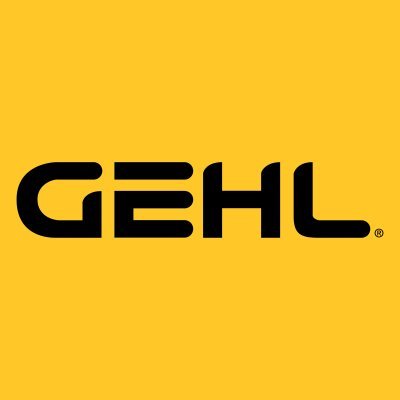Your cart is currently empty!
Mastering Operation and Maintenance of Your GEHL Engine

Owning and operating GEHL equipment can be a rewarding experience, but it comes with the responsibility of ensuring that the engine runs smoothly and efficiently. A key aspect of this responsibility is becoming familiar with the operation and maintenance of your GEHL equipment engine. This article aims to provide you with a comprehensive guide on understanding the basics of your GEHL engine, conducting regular maintenance, troubleshooting common issues, and gathering the essential tools and supplies needed for maintenance. By following these guidelines, you can ensure the longevity and optimal performance of your GEHL equipment.
Understanding GEHL Equipment Engine Basics
Understanding the basics of your GEHL equipment engine is the first step towards effective operation and maintenance. GEHL engines are designed to offer robust performance and durability. They come in various models, each tailored to specific types of equipment and tasks. Familiarize yourself with the engine specifications, including horsepower, torque, and fuel type. This information is typically available in the user manual or on the manufacturer’s website. For detailed information, you can visit GEHL Manuals.
In addition to understanding the specifications, it’s crucial to know the different components of the engine. Components such as the fuel system, cooling system, lubrication system, and electrical system each play a vital role in the engine’s operation. Knowing how these parts work together can help you identify potential issues before they become serious problems. The user manual often provides diagrams and descriptions that can be incredibly helpful in this regard.
Another fundamental aspect is understanding how to operate the engine safely. This includes knowing how to start and stop the engine, adjust throttle settings, and engage or disengage the clutch. Proper operation not only ensures safety but also prolongs the life of the engine. Make sure to follow all safety guidelines and recommendations provided by GEHL.
Lastly, becoming familiar with the engine’s diagnostic features can be incredibly beneficial. Many modern GEHL engines come equipped with diagnostic tools that can alert you to potential issues. Understanding how to read these diagnostics and what actions to take can save you time and money on repairs. For more detailed guides and troubleshooting tips, you can refer to the GEHL Manuals.
Regular Maintenance for Optimal Performance
Regular maintenance is crucial for the optimal performance of your GEHL equipment engine. One of the most important maintenance tasks is changing the engine oil and oil filter. Regular oil changes help to keep the engine lubricated and running smoothly. Most GEHL engines require an oil change every 100-200 hours of operation, but always refer to your specific model’s user manual for exact intervals. For detailed maintenance schedules, visit GEHL Manuals.
Another vital maintenance task is checking and replacing the air filter. A clean air filter ensures that the engine receives a proper mix of air and fuel, which is essential for efficient combustion. Inspect the air filter every 50 hours of operation and replace it if it appears dirty or clogged. Keeping the air filter clean can significantly improve the engine’s performance and fuel efficiency.
Coolant levels should also be monitored regularly. The cooling system is responsible for maintaining the engine’s temperature and preventing overheating. Check the coolant level before each use and top it up if necessary. Additionally, it’s a good practice to flush the cooling system and replace the coolant at least once a year. This helps to remove any contaminants that could cause blockages or corrosion.
Lastly, inspect the fuel system regularly. This includes checking the fuel lines for leaks, ensuring that the fuel tank is clean, and replacing the fuel filter as needed. A well-maintained fuel system ensures that the engine receives a steady supply of clean fuel, which is essential for optimal performance. For more detailed maintenance procedures, you can refer to the GEHL Manuals.
Troubleshooting Common Engine Issues
Even with regular maintenance, you may occasionally encounter engine issues. One common problem is difficulty starting the engine. This can be caused by a variety of factors, including a dead battery, clogged fuel filter, or faulty ignition system. Start by checking the battery connections and charging the battery if necessary. If the problem persists, inspect the fuel filter and replace it if needed. For more troubleshooting tips, visit GEHL Manuals.
Overheating is another common issue that can affect GEHL engines. Overheating can be caused by low coolant levels, a faulty thermostat, or a clogged radiator. Begin by checking the coolant level and topping it up if necessary. If the engine continues to overheat, inspect the thermostat and radiator for any signs of blockages or damage. Replacing these components as needed can help to resolve the issue.
Engine misfires can also occur, which are often caused by issues with the spark plugs or fuel injectors. Inspect the spark plugs for signs of wear or damage and replace them if necessary. Additionally, check the fuel injectors for any blockages and clean them if needed. Regularly inspecting and maintaining these components can help to prevent engine misfires.
Lastly, unusual noises coming from the engine can indicate a variety of issues, such as loose components, worn belts, or low oil levels. Start by inspecting the engine for any loose parts and tightening them as needed. Check the belts for signs of wear and replace them if necessary. Additionally, ensure that the engine oil level is adequate and top it up if needed. For more detailed troubleshooting guides, you can refer to the GEHL Manuals.
Essential Tools and Supplies for Maintenance
Having the right tools and supplies is essential for performing maintenance on your GEHL equipment engine. One of the most important tools is a set of wrenches and sockets. These are necessary for removing and installing various engine components, such as the oil filter, spark plugs, and belts. Make sure to have a range of sizes to accommodate different parts of the engine.
Another essential tool is an oil filter wrench. This specialized wrench makes it easy to remove and install the oil filter, which is a crucial part of regular maintenance. Additionally, having a funnel and oil drain pan can help to make the oil change process cleaner and more efficient. For a complete list of recommended tools, visit GEHL Manuals.
A multimeter is also a valuable tool for diagnosing electrical issues. This device can be used to test the battery, ignition system, and other electrical components to ensure they are functioning properly. Having a multimeter on hand can save you time and effort when troubleshooting engine problems.
Lastly, it’s important to have a supply of essential maintenance items, such as engine oil, coolant, air filters, and fuel filters. Keeping these supplies on hand ensures that you can perform maintenance tasks as needed without delay. For a detailed list of recommended supplies, you can refer to the GEHL Manuals.
Maintaining and operating your GEHL equipment engine doesn’t have to be a daunting task. By understanding the engine basics, performing regular maintenance, troubleshooting common issues, and having the right tools and supplies, you can ensure that your equipment runs smoothly and efficiently. For more detailed information and guides, don’t hesitate to visit GEHL Manuals. Taking the time to familiarize yourself with these aspects will not only prolong the life of your engine but also enhance your overall experience with GEHL equipment.
